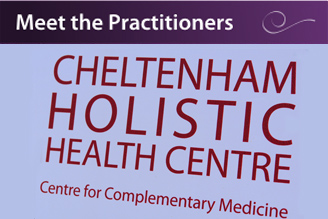LIVING WITH COVID
During the past year most of us have experienced massive upheaval in the way we live. Not since the Second World War has humanity faced such radical impact on a global scale. A lot of what we take for granted has been removed or at the very least curtailed.
In the UK alone we have endured three lockdowns, varying in restrictions including; not being able to see friends or loved ones, travel to work, go into certain shops, restaurants, bars, theatres, cinemas, gyms, not being able to go on holiday, board a plane, even sometimes use public transport and through all of this the wearing of masks has become obligatory.
Whether the Coronavirus was ‘man-made’ in a Wuhan lab, or accidentally transmitted from animal to man, makes no difference to its devastating toll. Official figures indicate nearly 4 million people have died so far worldwide from the virus. This figure is conservative at best as many governments downplay statistics and choose not to report, for instance, those people who have died at home rather than in hospital.
During this, all of us to some degree have experienced loss, whether it is the tragic loss of a loved one or the loss of work, finances, social events and other activities that form the fabric of our lives. We have been forced to re-shape the way we live.
We have been required to take a massive break from the excesses of our fossil fuel driven society. It has shown us that we can cut down on our carbon spending. When ‘things return to normal’, will we just pick up where we left off, or can we change tack and find a different way to live with ourselves and our planet? Most of us are now questioning our values and re-assessing what really matters in our lives. I would suggest, one outcome, is a re-appreciation of how precious friends and loved ones are and in contrast how unnecessary are a lot of our material acquisitions.
If a cross section of how the virus has impacted us can be measured in my consulting room then I would surmise much good has come from it. Most people I am seeing present with very similar stories;
They say spending more time at home has not been easy and using food /drink in a compensatory way has led to weight gain. But this has been tempered by an increased awareness of the value of food. Many people have turned vegetarian or, at the very least, have cut down significantly on their meat and fish intake. Many people want to eat in a way that is more sustainable for the health of the planet. I have never before witnessed such an enormous shift in consciousness.
There is a real desire to be ‘healthy’ in the widest possible terms. Not just physically but emotionally, mentally and spiritually. Many people have enjoyed the simple contact with nature; walking, cycling, gardening etc as these forms of exercise were permitted during the harshest lockdown measures. This has resulted in a deeper understanding for and appreciation of nature.
Many clients have said they would rather increase their food shopping bill by £20 a week to enable them to buy more quality/organic food and cut back on other forms of spending such as clothes and alcohol. If this is a sample of what is happening nationwide then maybe we could be moving into a more conscious, sustainable future.
Of course the virus has brought the question of our health into sharp focus. We know Covid 19 is more likely to manifest in extreme ways in the elderly and those of us with underlying health conditions or/and compromised immune systems. But, we all can ‘catch’ the virus or unwittingly pass it on to others. As a result, all of us can benefit from keeping ourselves as healthy as we can.
Which comes back to how we take care of ourselves – we can do this by choosing/buying foods that nourish our digestive tract, boost positive flora, and consequently our immune system.
Our digestive system thrives best and creates the most life giving positive bacteria
- on a complex range of good quality foods including;
50 per cent vegetables/salad; beetroot, carrot, fennel, broccoli, sweet potatoes, swiss chard, greens, cauliflower, asparagus, avocado, celeriac, peas, beans, lettuce, rocket, spinach, leeks, okra, cucumber etc
20 per cent protein; meat, chicken, fish, beans, pulses, legumes, nuts, seeds, soya, tofu, etc
15 per cent starch; spelt wheat, oats, potatoes, rice, rice noodles, buckwheat, bran, rye, etc
10 per cent fruit; apples, pears, berries, grapes, oranges, lemons, melons etc
5 per cent fats including, olive oil, sunflower oil, sesame oil, non cow’s milk dairy fats, cheese, butter, yoghurt, coconut etc
All the above, preferably organic, locally sourced, in season, or the best quality we can afford.
- avoiding, fast/processed foods. Latest scientific research has shown the devastating impact fast foods has on children’s brains.
There have been many studies into the negative effects of fast food, one of the most famous being the documentary Super Size Me. More recently, Richard Stevenson, a researcher at Macquarie University in Sydney, carried out an experiment on 105 young healthy volunteers. One group lived exclusively on junk food for eight days while the other maintained their normal healthy eating habits. What he discovered was that the group eating fast food group developed negative effects including aggression, depression, stress and even certain parts of their brains to shrink.
- balancing our lives to reduce stress levels.
The impact of stress on our health and immune system cannot be underestimated. Stress is caused by fear. Fear releases adrenaline to help us respond to possible threats. But if we always feel under some sort of stress/pressure it may be the pre-cursor to IBS, SIBO, constipation, allergies, psoriasis and other auto immune diseases, where our bodies start to over-react to the smallest triggers. Stress can be counteracted by trying to establish a healthy ratio between work/rest and play, by exercise, meditation, accepting a more simple lifestyle and examining and releasing the cause of our deepest fears.
- removing toxicity.
The lockdown months may have contributed to overeating or indulgences of one sort or another which may have led to a build up of toxicity in the digestive system. This in turn could have impacted negatively our intestines, stomach, liver and kidneys, resulting in symptoms such as bloating, energy depletion, even depression. The best and quickest way to help reverse these autointoxication signs is to embark on a combination of colon hydrotherapy treatments together with a cleansing diet. Your practitioner can advise on this and also add appropriate implants and probiotic infusions where necessary.
CHHC provides an extensive range of wonderful treatments that can help us achieve and maintain our health, balance and vitality. Sadly, the virus, with its endless capacity to mutate and replicate, will not be going away any time soon. It’s a question of all of us keeping our immunity strong, observing, ‘codes of conduct’ and taking the vaccine as and when necessary. Hopefully, at the very least, we can keep on top of it.
Looking forward to seeing you at CHHC and wishing everyone a good summer.
Caroline Shaw








